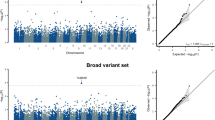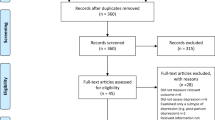Abstract
One of the most replicated findings in biological psychiatry is the observation of lower 5-hydroxyindoleacetic acid concentrations, the major metabolite of serotonin, in the brain and cerebrospinal fluid of subjects with impulsive aggression. Tryptophan hydroxylase (TPH) is the rate-limiting enzyme in the synthesis of serotonin, however functional variants have not been reported from the coding sequence of this gene. Therefore, we screened the human TPH promoter (TPH-P) for genetic variants which could modulate TPH gene transcription. The TPH-P (2093 nucleotides) was screened for sequence variation by SSCP analysis of 260 individuals from Finnish, Italian, American Caucasian, and American Indian populations. Four common polymorphisms were identified: −7180T>G, −7065C>T, −6526A>G, and −5806G>T (designated as nucleotides upstream of the translation start site). In the Finns, the four polymorphisms had a minor allele frequency of 0.40 and in this population linkage disequilibrium between the four loci was complete. In the other populations the minor allele frequencies ranged from 0.40 to 0.45. TPH −6526A>G genotype was determined in 167 unrelated Finnish offenders and 153 controls previously studied for the TPH IVS7+779C>A polymorphism. A significant association was observed between −6526A>G and suicidality in the offenders. TPH −6526A>G and the previously reported intron seven polymorphism, TPH IVS7+779C>A, exhibited a normalised linkage disequilibrium of 0.89 in Finns. Normalized linkage disequilibrium was reduced in other populations, being 0.49 and 0.21 in Italians and American Indians, respectively. In conclusion, four TPH-P variants were identified which can be used for haplotype-based analysis to localize functional TPH alleles influencing behavior.
This is a preview of subscription content, access via your institution
Access options
Subscribe to this journal
Receive 12 print issues and online access
$259.00 per year
only $21.58 per issue
Buy this article
- Purchase on Springer Link
- Instant access to full article PDF
Prices may be subject to local taxes which are calculated during checkout
Similar content being viewed by others
Author information
Authors and Affiliations
Corresponding author
Additional information
Deceased
Rights and permissions
About this article
Cite this article
Rotondo, A., Schuebel, K., Bergen, A. et al. Identification of four variants in the tryptophan hydroxylase promoter and association to behavior. Mol Psychiatry 4, 360–368 (1999). https://doi.org/10.1038/sj.mp.4000578
Received:
Revised:
Accepted:
Published:
Issue Date:
DOI: https://doi.org/10.1038/sj.mp.4000578
Keywords
This article is cited by
-
Molecular signature of excessive female aggression: study of stressed mice with genetic inactivation of neuronal serotonin synthesis
Journal of Neural Transmission (2023)
-
Association of TPH-1 and TPH-2 gene polymorphisms with suicidal behavior: a systematic review and meta-analysis
BMC Psychiatry (2014)
-
Endophenotypes as a measure of suicidality
Journal of Applied Genetics (2012)
-
TPH2 and TPH1: Association of Variants and Interactions with Heroin Addiction
Behavior Genetics (2008)
-
Tryptophan Hydroxylase-1 Gene Variants Associate with a Group of Suicidal Borderline Women
Neuropsychopharmacology (2006)



